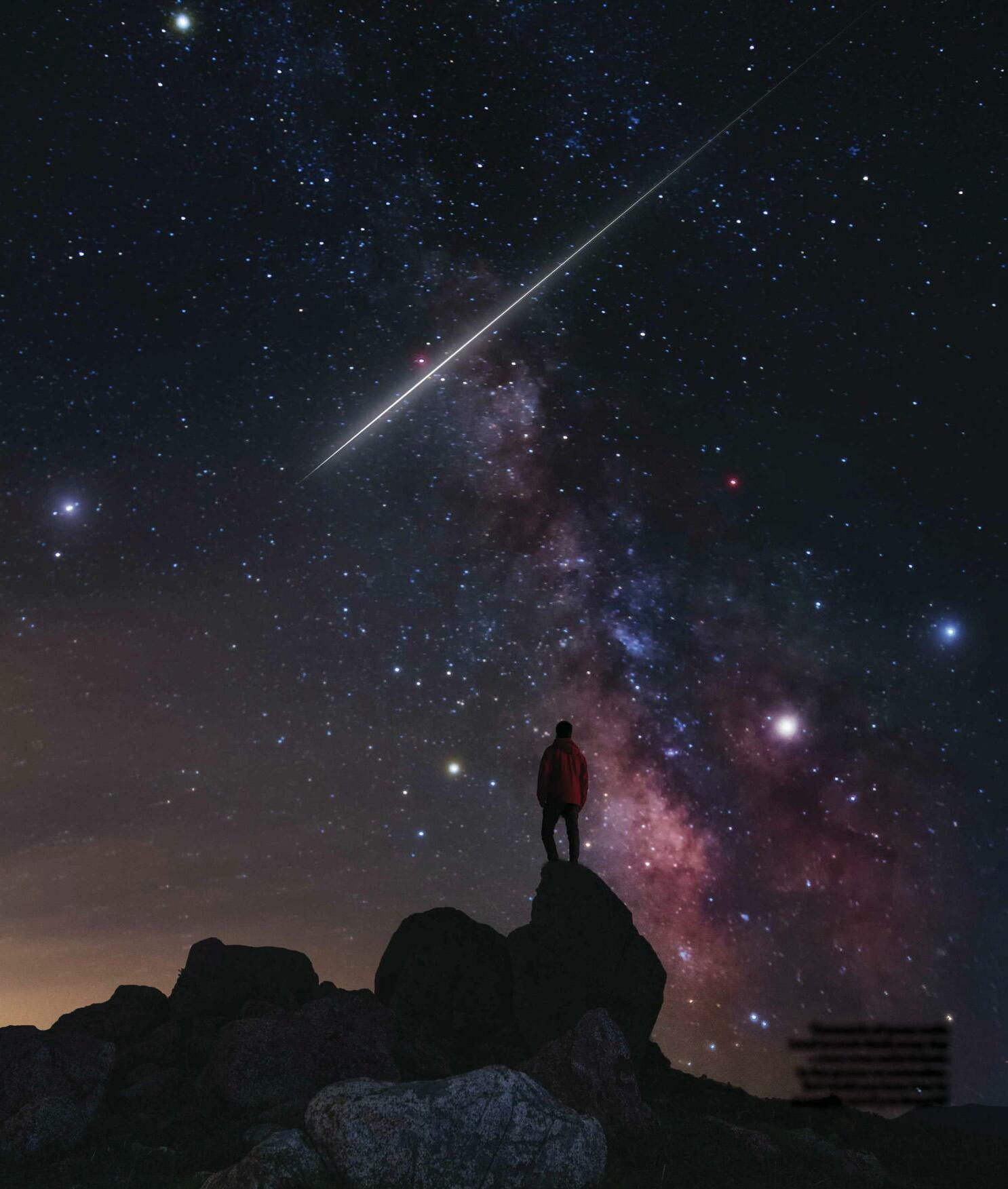What to do if you find a meteorite
BBC Sky at Night Magazine
|February 2025
Ever come across an unusual rock and wondered if it's a meteorite? Mark McIntyre explains how to tell if that stone really is a fragment from outer space

We're all fascinated by meteorites, ancient stony visitors from outer space. But what exactly are they, how do they get here and how can you tell if you've found one?
Most meteorites are fragments of material left over from the time when the Solar System was forming. Some never got scooped up by the gravity of a newly created planet, so they're orbiting the Sun alone. Others ended up as part of an asteroid or in the nucleus of a comet. Some meteorites come from other planets, dwarf planets or moons, including lunar and Martian fragments that were ejected into space following an impact.
So you can see why these objects capture our imaginations. They offer us a chance to study the conditions of the early Solar System or the surface of another planet without having to go there. Indeed, meteorites are still the only samples we have from Mars or some of the dwarf planets like Ceres, so they are an invaluable source of information.
How do these fragments end up on Earth? Over millions of years, the gravity of the planets, especially Jupiter, has pushed asteroids into particular orbits, such as the asteroid belt between Mars and Jupiter. Collisions between asteroids create large fragments, small particles and dust, some of which get nudged into new orbits that take them towards Earth, where they burn up in our atmosphere to form a meteor.
Comets that formed far beyond the orbit of Neptune can also be nudged into new orbits that bring them to the inner Solar System. As a comet nears the Sun, its icy nucleus starts to sublimate, releasing a trail of trapped dust. When Earth passes through this dust, these particles will also burn up in our atmosphere as meteors. Cometary debris is responsible for most of our meteor showers.
What are the chances?
Denne historien er fra February 2025-utgaven av BBC Sky at Night Magazine.
Abonner på Magzter GOLD for å få tilgang til tusenvis av kuraterte premiumhistorier og over 9000 magasiner og aviser.
Allerede abonnent? Logg på
FLERE HISTORIER FRA BBC Sky at Night Magazine

BBC Sky at Night Magazine
MOONWATCH
January's top lunar feature to observe
2 mins
January 2026

BBC Sky at Night Magazine
Speed up your processing workflow
How to use Photoshop's Actions tool to drastically cut your processing time
3 mins
January 2026

BBC Sky at Night Magazine
Chasing Canada's polar lights
With solar maximum peaking and a new Moon promising dark skies, Jamie Carter travels to Churchill, Manitoba to hunt the Northern Lights - and dodge polar bears – in Canada's far north
7 mins
January 2026

BBC Sky at Night Magazine
Beyond Pluto: The search for the hidden planets
Could one – or even two - undiscovered planets lurk at the edges of our Solar System? Nicky Jenner explores how close we are to finding the elusive 'Planet 9'
6 mins
January 2026

BBC Sky at Night Magazine
Jupiter moon events
Jupiter is a magnificent planet to observe.
2 mins
January 2026

BBC Sky at Night Magazine
What samples from space have taught us
Alastair Gunn explains what scientists have learnt in the 20 years since the first unmanned mission brought materials back from alien worlds
3 mins
January 2026

BBC Sky at Night Magazine
The Milky Way as you've never seen it before
This is the largest low-frequency radio colour image of our Galaxy ever assembled
1 min
January 2026

BBC Sky at Night Magazine
Merger of ‘impossibly' massive black holes explained
Scientists discover how enormous, fast-spinning black holes can exist after all
1 mins
January 2026

BBC Sky at Night Magazine
Lunar occultation of the Pleiades
BEST TIME TO SEE: 27 January from 20:30 UT
1 min
January 2026

BBC Sky at Night Magazine
The Universe's expansion may be slowing down
New study suggests current theories of dark energy could be wrong
1 mins
January 2026
Listen
Translate
Change font size

